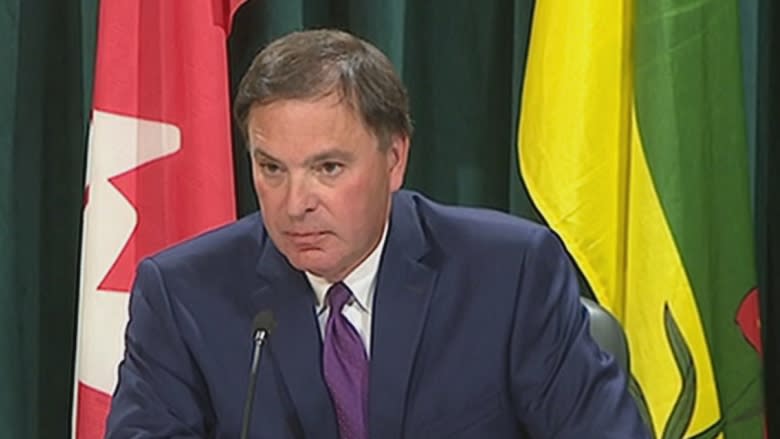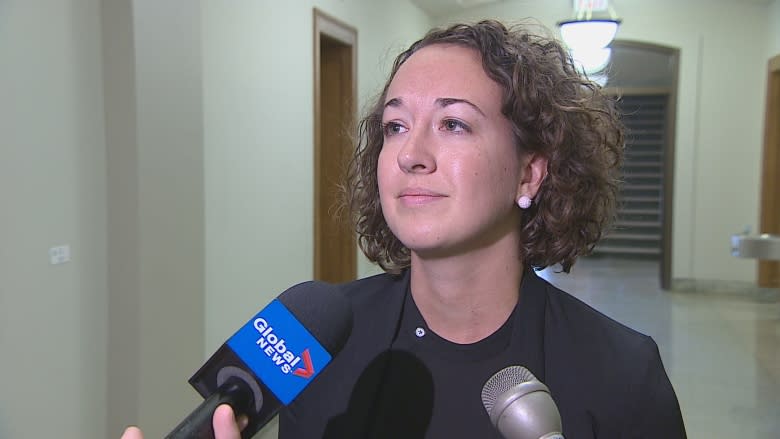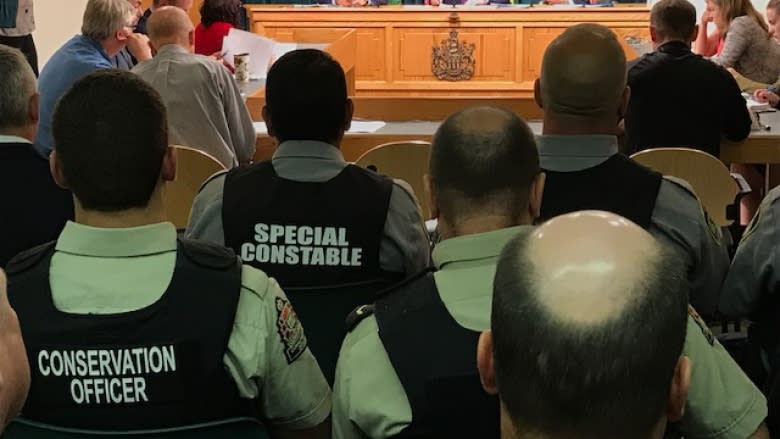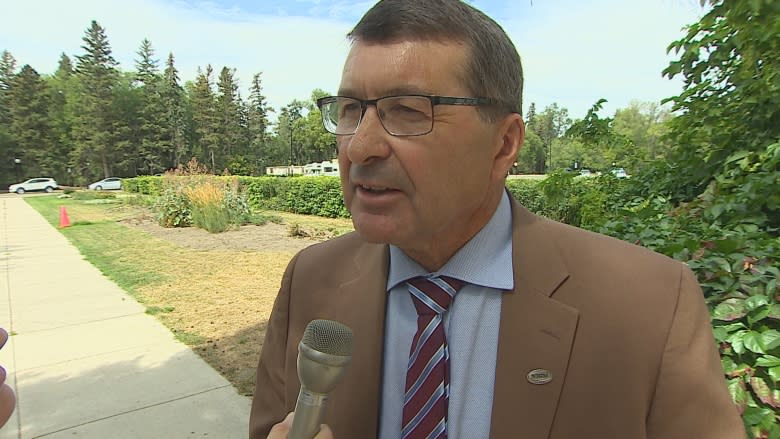Province's new rural crime response team 'a shell game': NDP
The Saskatchewan government is expanding the powers of conservation officers and commercial vehicle enforcement officers to include the power to arrest and detain.
The move is part of the government's decision to create a rural crime response team, its first step in implementing recommendations made by a committee earlier this year.
The move drew criticism from the Opposition NDP, who said mental health care and education need to be addressed as well.
"Largely, it looks like [the province is] playing a shell game," said interim Opposition leader Nicole Sarauer.
Sarauer said there are a lot of positions being moved around but there does not appear to be much else new.
"That's particularly concerning," she said, highlighting cuts to municipal police services.
"It'll be difficult and interesting to see how the government tries to deploy the very limited new resources that they've announced today."
Sarauer said police officers and other officers, such as conservation, are going to be doing more work for the same amount of pay.
Rural crime has been a concern in the province as response times for emergency services stretch, often due to under-staffing.
"[Conservation officers are] trained very, very similar to what the police are," said Dale McFee, deputy minister responsible for corrections and policing.
"But the reality is if there's a call ... if they're close, can they be the first to that call to enhance response?"
The rural response team, as part of the province's efforts to address rural crime and police response times, is composed of 258 officers, including 30 new positions.
Ninety-eight conservation officers will make up a part of the team. As well, 40 commercial vehicle enforcement officers will also be able to respond to calls and make arrests.
That means conservation officers could be called to break and enters if they were closer to the scene than the RCMP. Those officers can stop vehicles now, but they are not trained in radar technology.
"They also deal with people that have firearms, more often than not, and have very similar training," McFee said.
"The commonality of all three of those organizations is they all have red and blue lights," McFee said. "There's an expectation of the public when you see a red and blue light, you can get help."
Thirty officers will be "repurposed" positions, and the remaining 60 will be RCMP and other municipal officers.
The ministry hopes the new team will improve police response times in rural areas, reduce vehicle collisions and increase road safety, and increase drug enforcement on provincial roads and highways.
SARM pushing for more officers
The Saskatchewan Association of Rural Municipalities says it is generally pleased with the news of a new rural crime task force, but will be pushing for more officers.
Association president Roy Orb said the organization had previously met with Ralph Goodale, federal minister of public safety, and will again on Thursday.
"We're going to be reiterating our concern about the RCMP vacancies in Saskatchewan, especially in the rural area," Orb told CBC News.
"The problem is that there are a lot of members that are off at any time as well," Orb added, referring to sick, maternity and disability leave.
Committee recommendations
Some of the recommendations made by the caucus committee include:
- Expanding mental health and addictions services across the province.
- Working with the federal government to restore a gang exit strategy.
- Reviewing the legislation to allow two or more rural municipalities to jointly administer alternative policing programs.
The initiative will cost $5.9 million, with $1 million to be paid by the ministry. The remaining cost will be picked up by SGI, the provincial insurance company.
In March, SARM passed a resolution at its yearly convention that called on the government to make laws that would allow rural residents more rights to protect their property.
SARM, FSIN relationship 'a bit weak'
Orb said the resolution had put a strain on SARM's relationship with the Federation of Sovereign Indigenous Nations. According to the province, FSIN Chief Bobby Cameron was invited but did not attend Tuesday's announcement.
Orb described the SARM relationship with the FSIN as "fractured" and "a bit weak."
"The FSIN did take issue with the resolution that was passed at our convention and they thought it was targeted at them. That wasn't the case at all," said Orb.
FSIN Chief Bobby Cameron could not be reached for comment.
The resolution was put forward seven months after the death of Colten Boushie, a passenger in a car with four other people who was shot and killed on Aug. 9 on a farm near Biggar, Sask.
Lionel Story, a councillor in the R.M. of Kindersley, where the resolution originated, said at the time the resolution was not inspired by the shooting death of Colten Boushie.
The move also followed a call for calm from the RCMP after Saskatchewan farmers said they were carrying firearms during their harvest because of concerns over rural crime.
Delegates at the SARM convention in March voted in favour of the resolution by more than 93 per cent.
Justice Minister Gordon Wyant denounced any legislation that would give people more leeway to take the law into their own hands.
He said the FSIN had been involved in the consultation process for the rural crime report.
"We see them as a very, very important partner in helping to deal with some of the issues that are happening in this province from a crime perspective," said Wyant.
"And so I spoke to Chief Cameron this morning about the importance of building relationships between the police and the FSIN and he's certainly attuned to that."
Wyant also said Saskatchewan would be calling for a review of the federal Youth Criminal Justice Act to stiffen the penalties for young offenders and adults who enable young people to commit crimes.





